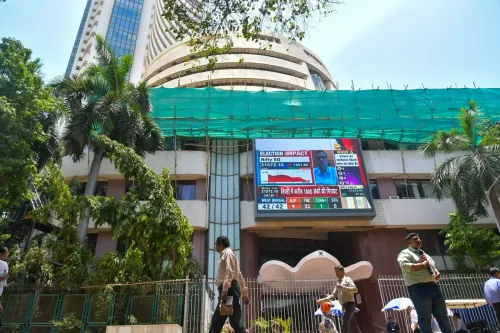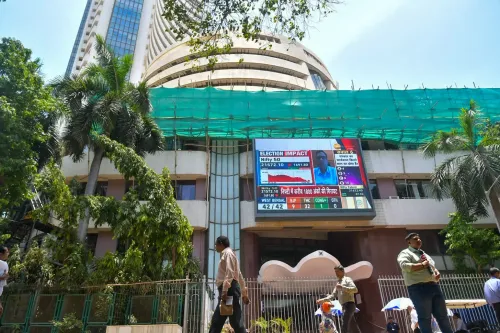Will India’s office space leasing by GCCs increase by 15-20% in the next two years?

Synopsis
Key Takeaways
- GCCs are a major influence on India's commercial real estate.
- Leasing growth is expected at 15-20% over the next two years.
- Technological firms lead GCC demand with 37% share.
- Chennai's GCC leasing surged by 5.3 times this year.
- Tier II cities will see increased GCC activity due to cost advantages.
Mumbai, Sep 17 (NationPress) Global Capability Centres (GCCs) have emerged as a pivotal force in India’s commercial real estate landscape, with leasing expected to rise by 15–20 percent in the coming two years, according to a report released on Wednesday.
By 2027, GCCs are anticipated to lease between 60–65 million square feet of Grade A office space, as per insights from real estate services firm Colliers.
Since 2021, these centres have leased around 100 million square feet across India's top seven cities, representing 36 percent of total office demand. The leasing activity from global corporations is projected to reach 28 million square feet by 2025, nearly double the figures from 2021, the report indicated.
Moreover, the proportion of GCCs in overall office leasing, which fell below 30 percent in 2022, has sharply increased to almost 40 percent in 2025.
“Capability centres in India are progressively transforming into innovation-oriented, domain-specific, and technology-integrated hubs, expected to drive over 40 percent of India’s office space demand,” stated Arpit Mehrotra, Managing Director of Office Services at Colliers India.
Technology companies represent 37 percent of GCC demand, leading the sector, while the banking, financial services, and engineering industries are rapidly growing, likely to contribute 40–50 percent of future leasing.
Within GCCs, the share of engineering and manufacturing tenants has increased from 11 percent to 17 percent, driven by escalating R&D and product engineering requirements.
Bengaluru and Hyderabad have accounted for 60 percent of GCC activity since 2021, while Chennai has seen GCC leasing surge by 5.3 times this year compared to 2021 levels.
“Flexible workspaces are also expected to gain popularity as GCCs pursue greater scalability and agility in their office portfolios. Concurrently, Tier II cities are set to witness a steady rise in GCC activities, supported by cost advantages, infrastructure enhancements, and talent availability,” noted Vimal Nadar, National Director and Head of Research at Colliers India.
Historically, US-based companies have accounted for nearly 70 percent of total GCC absorption since 2021. Recently, GCCs from the UK, EMEA, and APAC regions have also broadened their presence in India.








